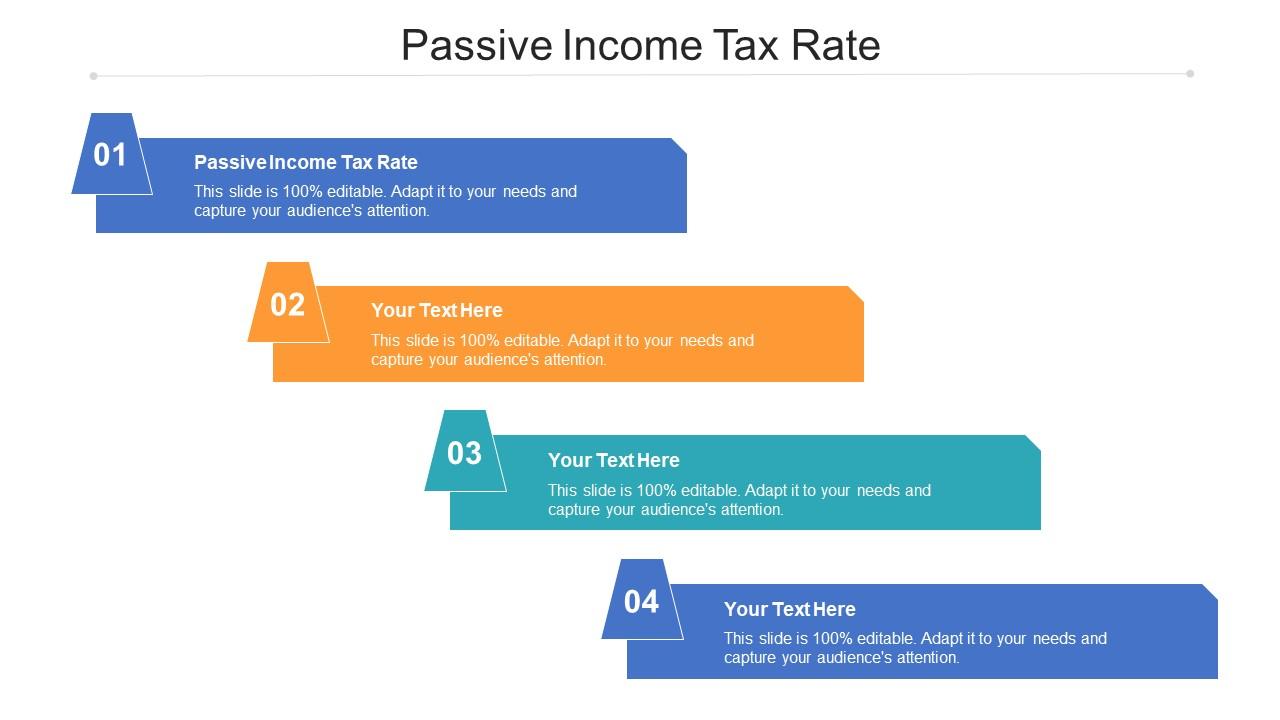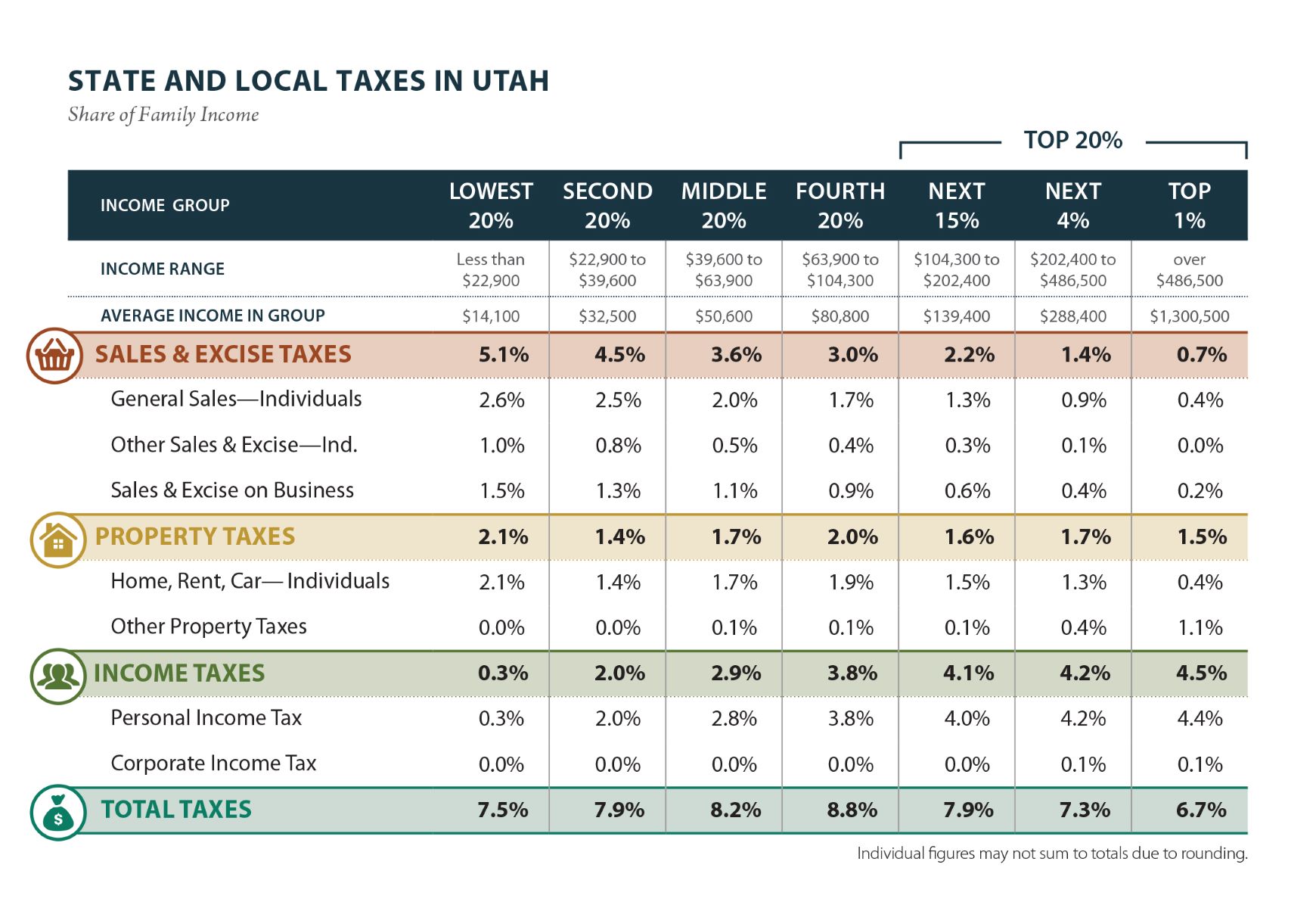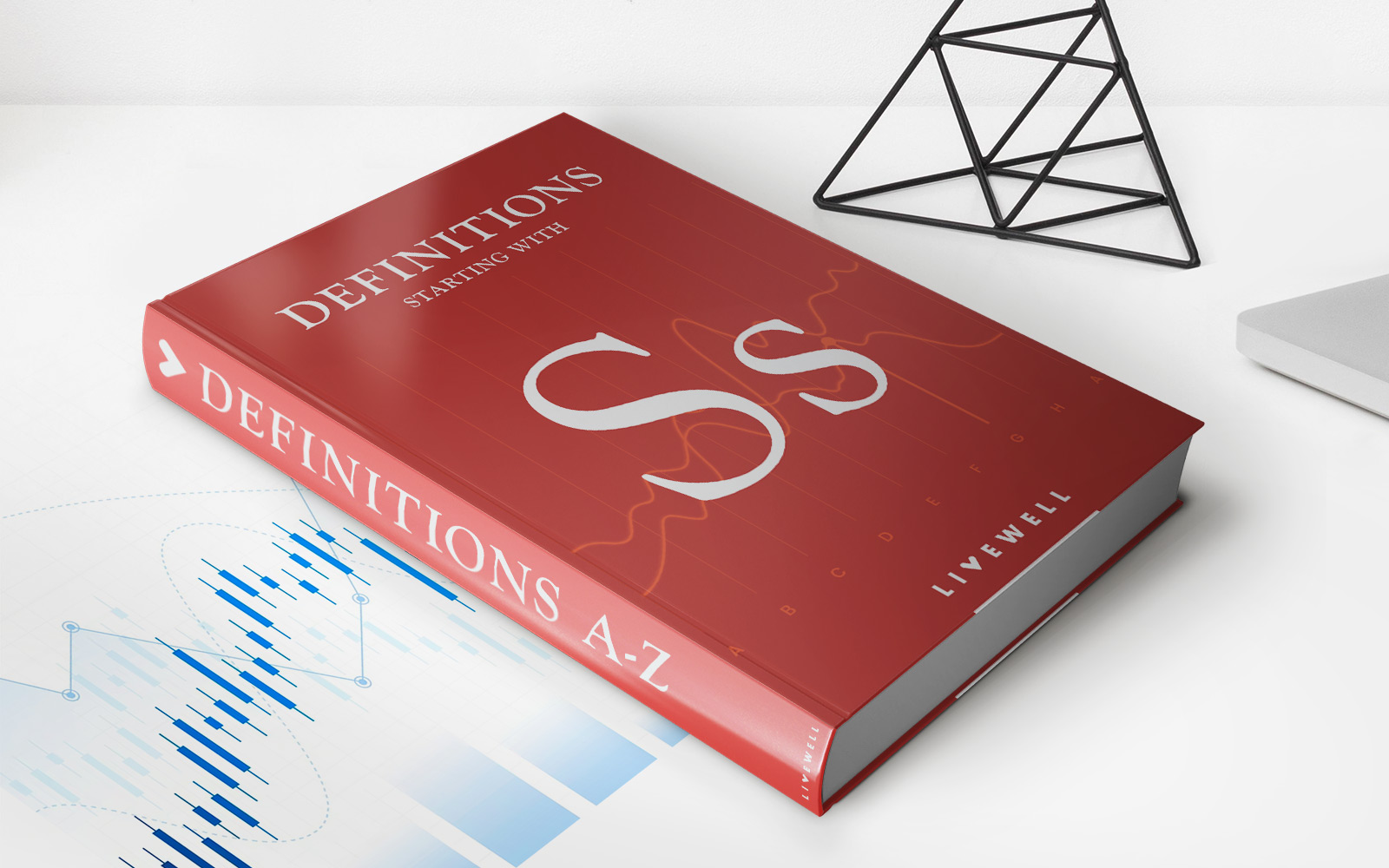

Finance
What Is The State Of Michigan Income Tax Rate
Modified: February 21, 2024
Looking for information on the state of Michigan income tax rates and how it affects your finances? Get all the details you need here.
(Many of the links in this article redirect to a specific reviewed product. Your purchase of these products through affiliate links helps to generate commission for LiveWell, at no extra cost. Learn more)
Table of Contents
Introduction
When it comes to personal finance, understanding the tax landscape is essential. If you are a resident of the state of Michigan or planning to move there, it’s important to be familiar with the state’s income tax. Income tax is a key source of revenue for the state, enabling it to fund public services and infrastructure.
In this article, we will provide an overview of the Michigan income tax system, explain how your taxable income is determined, and outline the calculation methods used to determine your tax liability. We will also delve into the different income tax rates in Michigan and discuss special tax situations that may apply to certain residents. Lastly, we will touch on recent changes in Michigan income tax law that you should be aware of.
Whether you are a current resident of the state or considering a move to Michigan, understanding the state’s income tax policies will empower you to make informed financial decisions and ensure compliance with tax regulations.
Overview of Michigan Income Tax
The state of Michigan imposes an income tax on individuals and businesses residing or operating within its borders. The funds generated from these taxes enable the state government to provide essential services such as education, healthcare, transportation, and public safety.
Michigan’s income tax system is based on a flat tax rate, which means that all taxpayers, regardless of their income level, are subject to the same tax rate. This simplifies the calculation process and provides consistency in tax liability across the board.
Residents of Michigan are required to file a state income tax return if they meet certain income thresholds. Non-residents who earn income from Michigan sources may also have to file a state income tax return, depending on their income level and duration of stay in the state.
It’s important to note that Michigan does not conform to all aspects of the federal tax code. While federal taxable income is used as a starting point for calculating Michigan taxable income, there are specific adjustments, exemptions, and deductions that apply at the state level.
Michigan follows a “modified gross income” system, which means that certain deductions are allowed before calculating the final taxable income. Examples of deductions include Michigan exemptions, personal exemptions, and specific deductions for pension and retirement income.
Additionally, Michigan offers various credits that can reduce your overall tax liability. Some common credits include the Homestead Property Tax Credit, Child and Dependent Care Credit, and the Home Heating Credit. These credits can help lower your tax bill and potentially result in a refund.
It’s crucial to keep accurate records of your income, expenses, and deductions to ensure you report the correct information on your Michigan income tax return. Failing to do so can result in penalties, interest, or even an audit by the Michigan Department of Treasury.
Now that we have explored the basic overview of Michigan’s income tax system, let’s move on to understanding how your taxable income is determined.
Determining Michigan Taxable Income
When it comes to calculating your Michigan income tax liability, your taxable income is the key factor. Determining your Michigan taxable income involves making adjustments to your federal taxable income to reflect the specific deductions, exemptions, and credits allowed at the state level.
Here are some important factors to consider when determining your Michigan taxable income:
- Federal Taxable Income: Start with your federal taxable income, which is the income reported on your federal income tax return. This includes wages, salaries, self-employment income, rental income, capital gains, and any other sources of taxable income.
- Michigan Exemptions: Michigan provides a personal exemption for each taxpayer and dependent claimed on your federal return. The amount of the exemption varies from year to year and is subtracted from your federal taxable income.
- Michigan Adjustments: Certain adjustments are made to your federal taxable income to arrive at your Michigan taxable income. These adjustments can include adding back certain deductions that are not allowed at the state level.
- Michigan Deductions: Michigan allows specific deductions not found on the federal tax return. These deductions can include contributions to the state’s College Savings Plan, certain retirement account contributions, and certain business expenses.
- Michigan Credits: Finally, consider any applicable credits that can reduce your Michigan tax liability. Some common credits include the Home Heating Credit, the Michigan Earned Income Tax Credit, and the Homeowner’s Property Tax Credit.
It’s important to note that Michigan has specific rules regarding residency and non-residency status, which can impact how your taxable income is determined. If you are a non-resident earning income in Michigan, you may be subject to different rules and requirements.
Keeping accurate records and staying up-to-date with the Michigan Department of Treasury’s guidelines is crucial to ensure you calculate your taxable income correctly. It’s also recommended to consult with a tax professional or use tax software to ensure accuracy and minimize the risk of errors.
Now that we have discussed how to determine your Michigan taxable income, let’s move on to understanding the calculation of your Michigan income tax.
Calculation of Michigan Income Tax
Calculating your Michigan income tax is a relatively straightforward process, thanks to the state’s flat tax rate system. Here is a step-by-step guide on how to calculate your Michigan income tax liability:
- Determine your Michigan taxable income: Start by determining your Michigan taxable income, as we discussed earlier. This involves making adjustments to your federal taxable income to reflect Michigan-specific deductions, exemptions, and credits.
- Refer to the Michigan income tax rate schedule: Michigan uses a flat tax rate for all taxpayers. The current flat tax rate for individuals is 4.25%.
- Multiply your taxable income by the tax rate: Take your Michigan taxable income and multiply it by the flat tax rate of 4.25%. The result is your preliminary Michigan income tax liability.
- Apply any applicable tax credits: If you qualify for any credits, subtract them from your preliminary tax liability. This will reduce your overall tax liability.
- Consider any additional taxes or surcharges: In addition to the flat tax rate, some areas in Michigan may impose additional local taxes or surcharges. If you live in one of these areas, you will need to factor in these additional taxes when calculating your total tax liability.
Once you have completed these steps, you will have determined your final Michigan income tax liability. It’s important to note that Michigan income tax is due on April 15th of each year, coinciding with the federal income tax deadline.
Remember to file your Michigan income tax return accurately and on time to avoid penalties or interest charges. The Michigan Department of Treasury provides online filing options and resources to assist taxpayers in meeting their obligations.
Now that we understand the calculation of Michigan income tax, let’s delve into the different income tax rates that apply in the state.
Michigan Income Tax Rates
Michigan has a simplified income tax system with a flat tax rate. This means that all taxpayers, regardless of their income level, are subject to the same tax rate. Currently, the flat tax rate for individuals in Michigan is 4.25%.
Unlike some states that have progressive tax systems, where tax rates increase as income levels rise, Michigan’s flat tax rate provides consistency in tax liability for all residents. This makes it easier for individuals to calculate and plan for their tax payments.
It’s important to note that the flat tax rate applies to both residents and non-residents who earn income in Michigan. This means that if you are a non-resident who worked or earned income in Michigan, you will also be subject to the 4.25% tax rate on your Michigan taxable income.
Michigan’s flat tax rate simplifies the tax calculation process, as taxpayers do not need to navigate through multiple tax brackets or different tax rates based on income thresholds. However, it’s still essential to accurately determine your Michigan taxable income and apply any applicable deductions and credits to ensure you are paying the correct amount of tax.
While the flat tax rate is the primary tax rate in Michigan, it’s important to be aware that some local jurisdictions may impose additional local taxes or surcharges. These additional taxes can vary depending on the area you live in or the types of services provided locally, such as public transportation or infrastructure projects.
To stay informed about any changes to Michigan income tax rates or local tax regulations, it’s recommended to regularly check the Michigan Department of Treasury’s website or consult with a tax professional who can provide guidance based on your specific circumstances.
Now that we have explored the flat tax rate in Michigan, let’s move on to discussing special tax situations that may apply to certain residents.
Special Tax Situations in Michigan
While Michigan follows a flat tax rate for most taxpayers, there are certain special tax situations that residents may encounter. These situations can impact the calculation of your Michigan income tax and result in different tax treatment. Here are a few notable special tax situations to be aware of:
- Retirement Income: Michigan provides special tax treatment for retirement income, including pensions, annuities, and distributions from retirement accounts. A portion of this income may be exempt from Michigan income tax, depending on your age and certain conditions. It’s important to review the rules and exemptions related to retirement income to determine your tax liability accurately.
- Part-Year Residents: If you moved in or out of Michigan during the tax year, you may be considered a part-year resident. In this case, your tax liability is prorated based on the portion of the year you resided in Michigan. You will need to file a part-year resident tax return, which requires careful allocation of income, deductions, and credits between your Michigan and non-Michigan income.
- Non-Resident Income: If you are a non-resident of Michigan but earned income from Michigan sources, such as wages from a job in the state, you may be subject to Michigan income tax on that income. Non-residents are required to file a Michigan non-resident tax return and report their Michigan-sourced income, which is taxed at the flat tax rate of 4.25%.
- Business Income: Self-employed individuals or owners of pass-through entities, such as partnerships or S-corporations, may have different tax considerations. In addition to reporting their business income on their personal income tax return, they may be eligible for certain deductions and credits related to business expenses, equipment purchases, and contributions to specific business-related programs.
- Education Savings Accounts: Michigan offers tax benefits for contributions made to qualified education savings accounts, such as the Michigan Education Savings Program (MESP). Contributions to these accounts may be deductible from your Michigan taxable income, providing an opportunity for tax savings while saving for higher education expenses for yourself or your dependents.
These special tax situations demonstrate the importance of understanding the specific rules and regulations that apply to your unique circumstances. It’s advised to consult with a tax professional or utilize tax software that can guide you through these complexities and ensure accurate reporting on your Michigan income tax return.
Now that we have covered special tax situations in Michigan, let’s explore any recent changes in Michigan income tax law that may affect taxpayers.
Recent Changes in Michigan Income Tax Law
Michigan income tax laws undergo periodic changes that can impact individual taxpayers’ obligations. Staying informed about these changes is essential to ensure compliance and optimize your tax planning. Here are some recent changes in Michigan income tax law that you should be aware of:
- Pandemic Relief Measures: Due to the COVID-19 pandemic, Michigan, like many other states, implemented relief measures to assist taxpayers. These measures included extended filing deadlines, waived penalties and interest for late payments, and expanded eligibility for certain tax credits. It’s crucial to stay updated on any ongoing pandemic-related tax relief measures and their expiration dates.
- Retirement Income Taxation: In recent years, there have been discussions and proposals related to the taxation of retirement income in Michigan. While Michigan currently offers exemptions and deductions for retirement income, future changes to the taxation of retirement income could impact retirees and individuals planning for their retirement in the state. Keeping track of any potential changes in this area is important for retirement planning purposes.
- Remote Work and Nexus: The COVID-19 pandemic has led to an increase in remote work arrangements. This has raised questions about nexus and tax obligations for individuals temporarily working from Michigan but residing in other states. The specific rules regarding taxation for remote workers can vary, and it’s important to understand the implications and requirements based on your specific situation.
- Legislative Updates: Michigan’s income tax laws can be subject to changes through legislative actions. It’s important to stay informed about any updates or amendments to the tax code. These changes may involve adjustments to tax rates, deductions, credits, or reporting requirements.
It is advisable to consult with a tax professional or utilize resources provided by the Michigan Department of Treasury to stay up-to-date on any recent changes in Michigan income tax law. These resources can ensure that you are aware of any new obligations or benefits that may affect your tax planning and compliance efforts.
By staying informed and proactively adapting to changes in Michigan income tax law, you can effectively manage your tax obligations and make informed financial decisions.
Now that we have covered recent changes in Michigan income tax law, let’s summarize the key points discussed in this article.
Conclusion
Understanding the state of Michigan income tax is crucial for residents and individuals earning income in the state. By familiarizing yourself with the key concepts and considerations surrounding Michigan income tax, you can ensure compliance with tax regulations, make informed financial decisions, and optimize your tax planning strategies.
In this article, we provided an overview of Michigan’s income tax system, including the flat tax rate that applies to all taxpayers. We discussed how to determine your Michigan taxable income, taking into account adjustments, deductions, and credits that may apply. Additionally, we explored recent changes in Michigan income tax law, such as pandemic relief measures and potential future changes to retirement income taxation.
It’s important to be aware of any special tax situations that may arise, such as part-year residency, non-resident income, and specific tax considerations for business owners and retirees. Staying up-to-date with any legislative updates and understanding the implications of remote work arrangements can also help you navigate the complexities of Michigan income tax.
Remember to keep accurate records, utilize tax software or consult with a tax professional, and file your Michigan income tax return accurately and on time to avoid penalties or interest charges. The Michigan Department of Treasury provides resources and online filing options to assist taxpayers in meeting their obligations.
By staying informed, understanding the calculation of your Michigan income tax, and taking advantage of deductions and credits, you can optimize your tax liability while ensuring compliance with state tax laws.
As tax regulations and laws can change over time, it’s essential to regularly review updates from the Michigan Department of Treasury or consult with a tax professional for personalized advice based on your specific circumstances.
In conclusion, taking an active role in understanding and managing your Michigan income tax will empower you to make informed decisions, minimize your tax liability, and contribute to the continued growth and development of the state.














